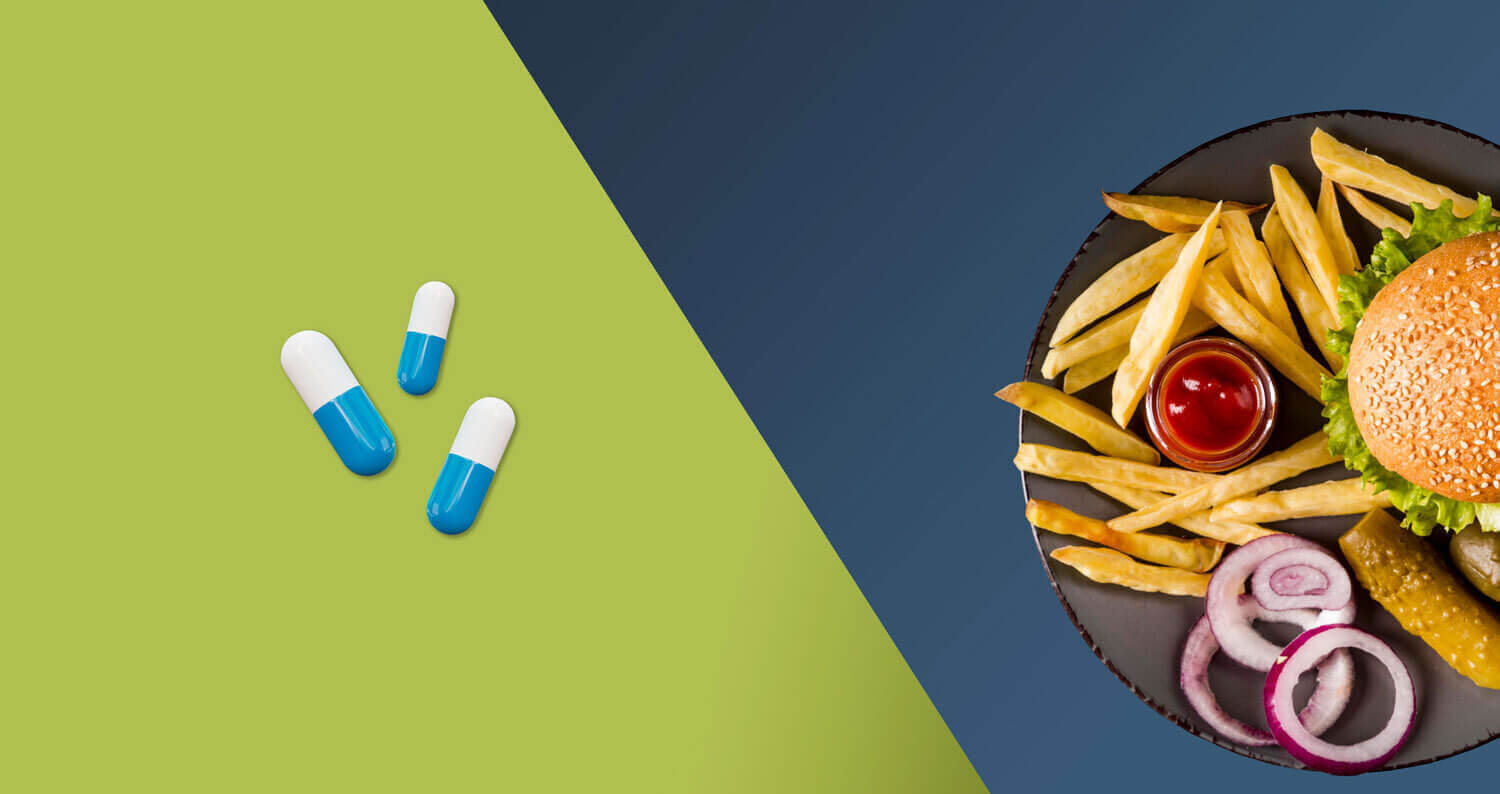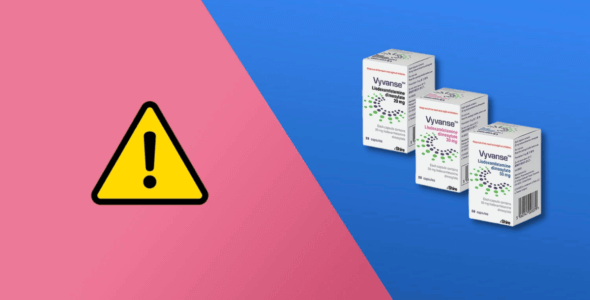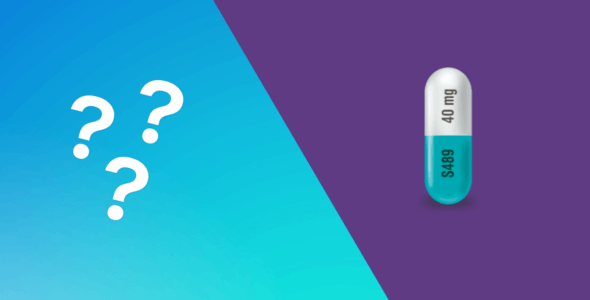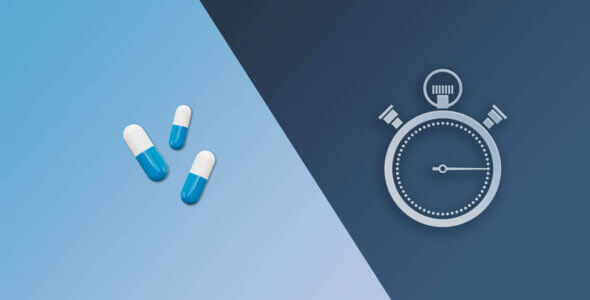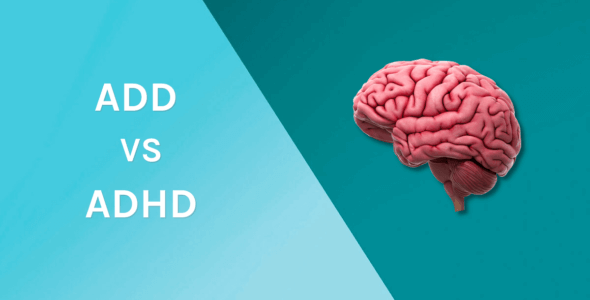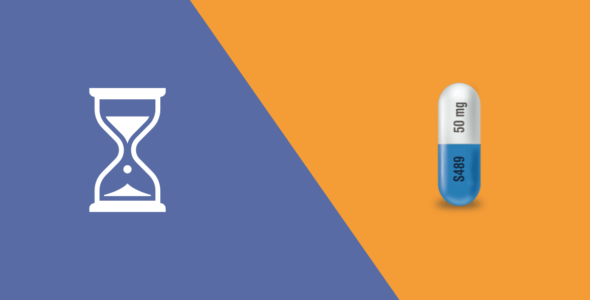Vyvanse weight loss and binge eating disorders
Table of contents
Vyvanse (lisdexamfetamine dimesylate), is a stimulant medication known mainly for treating attention deficit hyperactivity disorder (ADHD) but it also has the U.S. Food and Drug Administration (FDA) approval for the treatment of Binge Eating Disorder in adults. ADHD treatments are prescribed to control symptoms such as impulsive behavior and it is this effect that is thought to work well in binge eating disorders. The FDA and Shire Pharmaceuticals the manufacturers of the drug state firmly that Vyvanse is not a weight-loss drug. Let’s take a look at how Vyvanse works in more detail and how is it used in treating binge eating disorders.
What is Vyvanse?
Vyvanse is the brand name of lisdexamfetamine, an amphetamine, and also belongs to a class of drugs known as Central Nervous System (CNS) stimulants. This means it acts on your brain to increase activity and speed up mental and physical processes.
It is used to treat symptoms of
- Adult ADHD (Attention Deficit Hyperactivity Disorder) and ADHD in children, 6 years of age and older
- Moderate to severe binge eating disorder (BED) in adults
As a prescription stimulant medication, Vyvanse also falls into the category of a Schedule II controlled substance. This means there is a high potential of abuse with this drug leading to severe psychological and physical dependence. The FDA highlights this risk alongside possible heart problems and psychosis, which are more likely to occur when these stimulant medications are taken.
How does Vyvanse work?
When you swallow Vyvanse, your body converts the active ingredient lisdexamfetamine into a substance called dextroamphetamine. The dextroamphetamine is transported to your brain in your blood. It passes into your brain where it causes molecules called neurotransmitters to be released.
Neurotransmitters are produced naturally in your brain and body. They are signal molecules that allow messages to travel from nerve to nerve, regulating brain activity and playing a role in thinking and behavior.
Vyvanse causes your brain to release more neurotransmitters, like dopamine, norepinephrine, and serotonin, and slows down the speed at which they’re recycled. This causes levels of neurotransmitters to build up in your brain.
What are the key uses for Vyvanse?
Vyvanse for binge eating
Binge Eating Disorder (BED) is an eating disorder where you compulsively eat large amounts of food (binge eating). You may feel out of control when you do this, and you can not stop yourself. BED receives less media attention than other eating disorders, but it may be the most common eating disorder.
Unlike the similar eating disorder bulimia, people with BED don’t purge the food afterward (such as by vomiting). Because of this, it can result in weight gain and obesity. This can lead to health problems, but also mental health issues like feelings of guilt, low self-esteem, depression, and social isolation.
It’s thought that the increase in attention and control, and the decrease in impulsivity that Vyvanse can cause also help people reduce their binge eating.
Vyvanse for weight loss
While Vyvanse can cause weight loss as a side effect, it is not approved for weight loss by the FDA. Vyvanse should only be used to treat ADHD and BED.
While one side effect of Vyvanse suppresses the desire to eat, other effects such as increased heart rate and blood pressure and raised body temperature can also cause weight loss. These physical effects of the medication on the body can increase your metabolism and some people who still eat regularly while taking Vyvanse may experience weight loss without changes to their diet.
Vyvanse for ADHD
Attention deficit hyperactivity disorder (ADHD) affects the development of your brain. It’s usually diagnosed in childhood, often between the ages of six and 12.
ADHD symptoms include problems with paying attention, impulsive behavior, regulating emotions, mood swings, and can cause restlessness and excessive activity. It can make it difficult to focus, multitask, organize yourself, and manage your time. Because of this, ADHD can disrupt your school or professional life, and the lives of people around you.
Research has shown that Vyvanse can ease the symptoms of ADHD and improve the quality of your life. It’s thought that the increase in neurotransmitters it causes, improves your focus, attention, and reduces hyperactivity and impulsivity.
How long does Vyvanse last?
Vyvanse is slower acting and has a longer duration of effect than some other central nervous system stimulants. This is because your body must convert the active ingredient lisdexamfetamine into dextroamphetamine before Vyvanse has any impact. Vyvanse also contains an ingredient called lysine (an amino acid) that slows down how quickly lisdexamfetamine can be converted into dextroamphetamine. Vyvanse usually takes around two to 12 hours to affect you. Its effects can then last up to 14 hours.
How to make Vyvanse last longer?
Some people may find that Vyvanse doesn’t last for quite as long as they’d like it to. A quick search online reveals pages and pages of advice on what you can do to prolong the effects of Vyvanse, from eating large meals when you take it, to using magnesium supplements.
There’s no scientific research behind any of this advice, so it’s best if you ignore it. If you feel your Vyvanse dose isn’t right, you should talk to your doctor about changing it (never change your dose yourself). Learn more about how to make Vyvanse last longer.
What are the side effects of Vyvanse?
If you take Vyvanse you may experience side effects.
The most common side effects caused by Vyvanse in adults taking it for BED include:
- Loss of appetite
- Increased heart rate
- Feeling jittery
- Anxiety
- Constipation
- Dry mouth
- Insomnia
The more serious side effects that Vyvanse can cause include:
- Serious allergic reactions
- Serious cardiovascular reactions (heart attacks, strokes, and even death)
- Increases in heart rate and blood pressure
- Any new or worsening mental health problems
Vyvanse sexual side effects
Vyvanse can cause some sexual side effects. These include erectile dysfunction and prolonged erections for men. Both men and women can experience changes in their desire for sex (libido) too, both decrease and increase.
These sexual side effects don’t occur for most people who take Vyvanse. You may experience them, you may not, you won’t know until you try Vyvanse. Talk to your physician if you’re worried about sexual side effects and if you experience them while taking Vyvanse.
Get your Vyvanse medication for only $49 per month
Get StartedWhat precautions should you take with Vyvanse?
Vyvanse isn’t suitable for everyone. You should speak to a healthcare professional for medical advice. You shouldn’t take Vyvanse if you:
- Are allergic to any of the ingredients found in Vyvanse including the active ingredient lisdexamfetamine
- Are allergic to other amphetamine products
- Are taking monoamine oxidase inhibitors (MAOIs) like linezolid, or have taken MAOIs in the last 14 days
- Have serious heart problems, like structural cardiac abnormalities, cardiomyopathy, serious heart arrhythmia, or coronary artery disease
- Are under six years of age for children with ADHD
- Are under 18 years of age for adults with BED
It is important to talk to your physician before taking Vyvanse if you:
- Have a severe kidney condition
- Have a pre-existing psychotic disorder, or a history of depression, bipolar disorder, or manic episodes
- Have an addiction to alcohol or any drugs
- Are pregnant or breastfeeding
- Are over 65 years of age
Vyvanse FAQs
Is Vyvanse addictive?
Lisdexamfetamine, the active ingredient in Vyvanse, is a controlled substance that can be abused and become habit-forming. Vyvanse has the potential to be addictive. However, when used as prescribed to treat a medical condition, Vyvanse shouldn’t become habit-forming.
Lisdexamfetamine is converted in your body into dextroamphetamine, which is an amphetamine. Amphetamines can be used as a recreational drug. This is where they aren’t used as prescribed or to treat an indicated medical condition.
Recreational use, particularly heavy use of amphetamines, can lead to physical dependence (addiction). It can alter the way your body works. You can also become more tolerant of them, requiring higher doses to get the desired effect.
Vyvanse has less potential to be used recreationally than other amphetamines, as it’s slower acting, and won’t be absorbed quicker if it’s crushed or ground up. If used as directed by a doctor to treat ADHD or BED, it shouldn’t become addictive. Research has also shown that long-term use of stimulants from childhood to treat conditions like ADHD reduces the chances of addiction. Your healthcare provider should assess your risk of Vyvanse addiction before prescribing and should monitor you while you take it.
What are Vyvanse’s drug interactions?
Vyvanse can interact with other medications, including prescription drugs. In some instances, this can change how it and other medications work. It can even increase the likelihood and severity of some side effects. Medications that are known or thought to interact with Vyvanse include:
- Monoamine oxidase inhibitors, MAOIs, (tranylcypromine, isocarboxazid, phenelzine, or selegiline)
- Tricyclic antidepressants (desipramine or protriptyline)
- Medications that affect your serotonin system (SSRI or SNRI antidepressants, triptans, fentanyl, or St. John’s Wort)
What is the difference between Adderall and Vyvanse?
Adderall is a similar medication to Vyvanse. Both are central nervous system stimulants derived from amphetamines, and both are used to treat ADHD. Vyvanse is also used to treat BED, but Adderall isn’t.
Although the two medications are similar and work in a similar way, they contain different active ingredients. Adderall contains four different kinds of amphetamine salts, whereas Vyvanse only contains levoamphetamine, which is converted to dextroamphetamine inside your body.
Both Vyvanse and Adderall are effective treatments for ADHD, and they cause similar side effects. Vyvanse only has an effect once it’s been converted in your body, it’s thought to have a lower risk of abuse than Adderall.
How does Vyvanse make you feel?
People react to medications differently. Vyvanse can improve your focus, make you feel more alert, and help reduce impulsivity. It can have side effects though. Some people report that Vyvanse makes them feel tired, irritable, and nauseated. These side effects are felt less often than the benefits of Vyvanse.
How long does it take for Vyvanse to work?
This varies by person. It depends on your condition, your health, and how you react to the meds. For most people, Vyvanse takes between two to twelve hours to affect you.
How long does Vyvanse stay in your system?
This depends on how your body reacts to the medication and the dose you take. On average, Vyvanse stays in your blood for up to eight hours and in your urine for around three days.
Medically reviewed
A medical professional has reviewed this article.


Jamie Winn, PharmD
Jamie Winn, PharmD
Dr. Jamie Winn received his Doctor of Pharmacy in 2002 from the University of South Carolina College of Pharmacy, Columbia, SC. Jamie is a medical reviewer for NiceRx.

